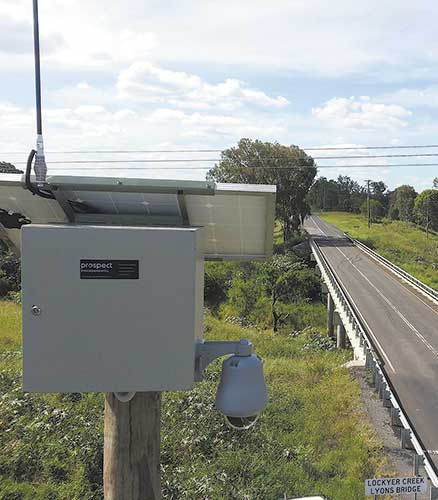Integrated PTZ camera systems from Prospect Environmental and Prospect Red Alert are making a positive difference to Councils, emergency services, and those living in in remote areas.
Numerous Queensland Councils and New South Wales National Parks are already using the innovative camera technology, developed by University of New England scientists, to safeguard the public and improve their disaster management.
Why PTZ cameras?
PTZ cameras are not only solar powered and able to connect to either cloud based or client server architecture, but are also able to integrate data from a variety of sensors (water and atmospheric) and apply the information to control applications.
This includes automated/remote control capabilities to activate and manage:
- ‘water over road’ Smart Signs
- mass notification systems for public warning
- boom gates (flooded road closure).
Proven benefits include the ability to:
- improve situational awareness for council and emergency personnel
- improve human resource utilisation
- monitor remote locations via gallery and real time viewing
- collect measured data and verify the data via images
- monitor for bushfires and floods
- collate historical data (e.g. of construction works).
Communications are via 3G, NextG or Satellite. The camera control system can include a spread spectrum radio for remote monitoring and control and data can easily be viewed in graphical format and exported in CSV format.
If you would like to know more, please contact:
Mark Wolf on 0425 937 535 or email mark.wolf@prospectgroup.com.au
Bruce Sproule on 0409 660 444 or email bruce.sproule@prospectgroup.com.au
or visit the website at www.prospectgroup.com.au
*Copy Supplied by Prospect Group

















